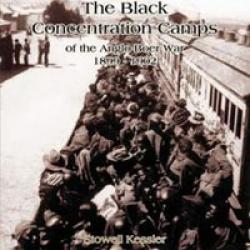
Published date
6 October 1899
With the outbreak of the Second Anglo-Boer War (or South African War) imminent, thousands of Black men and women were left stranded in Johannesburg. The mines had been closed by their owners and the miners paid off, but the mine-owners did not repatriate the miners. Thousands of miners were forced out of mine property and had to leave the safety of the mine compounds. Their prospects were very bleak. They faced the real possibility of being arrested for vagrancy, being shot at by Boer commandos, or becoming looters and rioters. Though trains were readily available to transport refugees to Natal and many Black mineworkers could afford to pay the required train fares, they were not given passage. As a result, more than 7 000 Zulu mineworkers, escorted by Mr J.J. Marwick, representative of the Natal Native Affairs Department and six Republican policemen, left Johannesburg on their way home to Natal and Zululand, walking about 56 kilometres per day, with the exception of some seventy men and fifty women and children who were too ill to continue the march and who boarded trains at Heidelberg station.
References
Brink, E. (1999). 1899: The Long March Home: a little-known incident in the Anglo-Boer War , Cape Town: Kwela;|
Cloete, P.G. (2000). The Anglo Boer War: a chronology, Pretoria: Lapa.